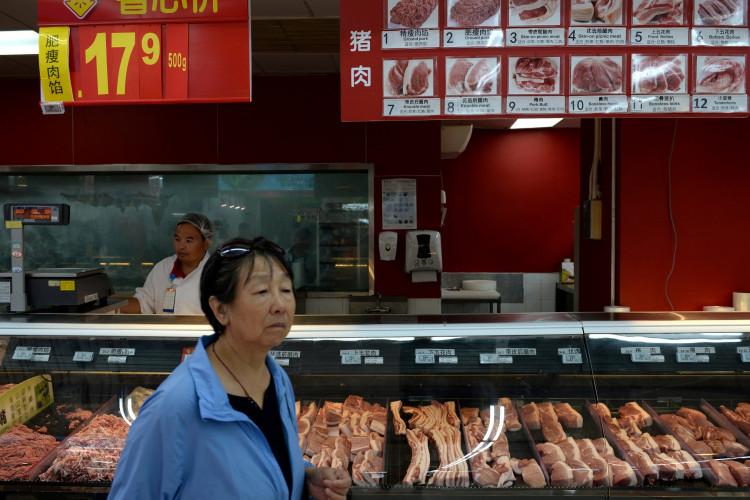Amid the ongoing African swine flu (ASF) epidemic, China has announced it will now waive import tariffs for some soybeans and pork shipments from the United States.
Most of the soybeans imported by China go to feeding its massive pig population, which is the world's largest. There were some 440 million pigs in China out of the total worldwide of 769 million in 2018. This makes China the leading pork producer worldwide, accounting for 55 million metric tons of pork annually.
ASF, however, reduced China's pig population by half in the first eight months of 2019. The pig population will likely shrink by 55% by the end of 2019, said Rabobank, a leading Dutch multinational bank. China's production of pork has also fallen on account of ASF.
China's State Council ordered the limited importation of soybeans and pork from the U.S. The Ministry of Commerce said the tariff waivers were based on applications by individual firms for U.S. soybeans and pork imports. It did not specify the quantities involved in the waivers.
China imposed tariffs of 25% on U.S. soybeans and pork in July 2018 in retaliation for tariffs levied by President Donald Trump over allegations of China wrongdoings in the transfer of American intellectual-property to Chinese firms.
The waiver comes as negotiations between the U.S and China to reach a phase one, or an interim deal to de-escalate a 17 month-long trade war, is going nowhere. Lifting tariffs on each other's goods is a key part of the stalled talks.
"China believes if both sides reach a phase-one agreement, relevant tariffs must be lowered," said Gao Feng, Ministry of Commerce spokesman Thursday, according to CNBC.
Gao also said both trade delegations remain in communication but revealed only a few additional details about the negotiations. He didn't talk about China's response to additional U.S. tariffs set to take effect Dec. 15. Gao also gave no details on the unreliable entities list.
Trump drove American farmers to ruin with his unwise decision to launch a trade war against China in June 2018. Trump declared the U.S. would impose a 25% tariff on $50 billion of Chinese exports. China retaliated by severely curtailing its purchases of U.S. soybeans and other agricultural products.
China was once the top buyer of U.S. soybeans and was also the biggest buyer of many other U.S. agricultural products, such as grain sorghum, cotton, and cattle hides. Soybean exports to China fell 75% from 2017 to 2018 as a result of Trump's trade war against China.
Brazil is the second-biggest soybean producer in the world. It's become China's largest soybeans supplier since China imposed retaliatorily tariffs on U.S. agriculture





